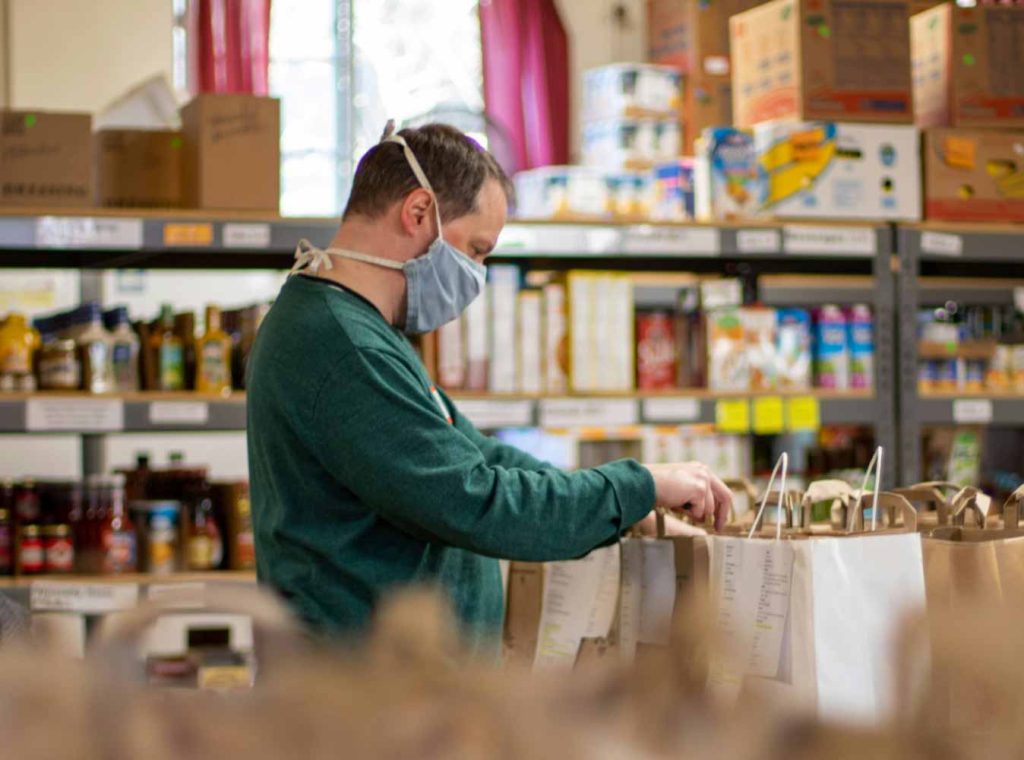Home > Offices > Permanent Diaconate > What is a Deacon?

What is a Deacon?
Diakonia – Service to God’s People and His Church
The book of the Acts of the Apostles gives us the first glimpse into the vocation of the diaconate. St. Luke explains the ministry using a Greek word to describe those who were called to the “service of the tables” – diakonia. This term provided the earliest foundation for the nature and meaning of the diaconate, which is charitable service rendered on behalf of others in all forms of service to the community (Compendium on the Diaconate; USCCB).
Men who answer the call to the vocation of the diaconate are those who have been living a life of service in many ways. They have given of their time, talent and treasure to the people of God with such zeal and enthusiasm that pursuing a vocation as a deacon is a natural extension of the life of service to which they have already been devoted.
Men who answer the call to the vocation
of the diaconate are those who have been living a life of service in many ways.
While the office of deacon has always been a part of the Church, the restoration of the permanent diaconate was the result of the Second Vatican Council. The Council’s dogmatic constitution Lumen Gentium establishes unmistakably that diaconal ministry should be reborn in the Church as a proper ministry, not just as a stage for candidates to the priesthood.
The Church recognizes two expressions of diaconal ministry – transitional deacons and permanent deacons. Both are ordained through the sacrament of Holy Orders, but with different ministerial objectives. Transitional deacons are those men who are on the path to ordination as priests. Permanent deacons, as its name implies, are men who will remain in ministry as a deacon. Since they will not be ordained as priests, the Church permits men who are ordained to the permanent diaconate to be married.
These men receive laying on of hands not for the priesthood, but for service. This service is expressed in the threefold ministries:
The Threefold Ministry of a Deacon

Ministry of the Word
The deacon’s Ministry of the Word expresses itself in those actions most commonly associated with evangelization and teaching. The proclamation of the Gospel as Mass, preaching a homily, teaching catechetical instruction, leading retreats, and spiritual direction are examples of this element of the deacon’s vocation.

Ministry of the Liturgy
The Ministry of the Liturgy is most commonly fulfilled through the deacon’s assistance to the priest at the Holy Sacrifice of the Mass. Offering the Prayers of the Faithful, preparing the eucharistic elements and vessels at the altar, elevating the chalice of the Precious Blood, offering the sign of peace, and dismissing the people of God at the end of Mass are examples. Additionally, the celebration of the sacrament of baptism, the witnessing of Catholic weddings, bringing viaticum to the dying and presiding at Catholic funerals and burials are also expressions of this ministry.

Ministry of Charity
Speaking on the subject of a deacon’s Ministry of Charity, St. John Paul II stated “The deacon’s service in the ministry of the Word and Liturgy would be severely deficient if the ministry of charity and justice did not accompany it.” It is important for the deacon to be a servant in sacrificial love to our brothers and sisters in Christ. And so, a deacon is a servant to the needy in our midst, including the sick, the imprisoned, the lonely, the poor, the widows and the orphans. Jesus himself gave deacons the supreme example when he washed the feet of his disciples.
Are you called to serve as a deacon?
- Review the information on the vocation of a deacon on the Diaconate page of the Archdiocesan website.
- Review the discernment information on the page “A Life of Service”.
- Pray earnestly about a possible vocation. Ask the Lord to open your heart to HIS will as opposed to your own desires.
- Talk to your spouse if you are married. Talk to other deacons and their spouses that you know.
- Contact the Office of the Diaconate of the Archdiocese of Cincinnati. The Director will help you understand the discernment process and can guide you through the steps of the formation process.
